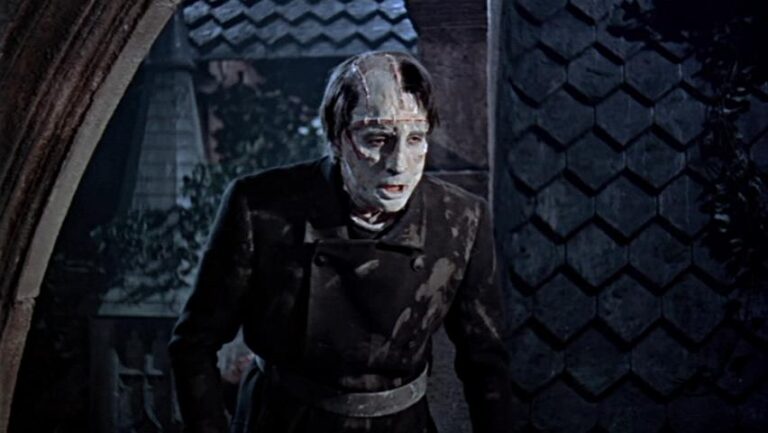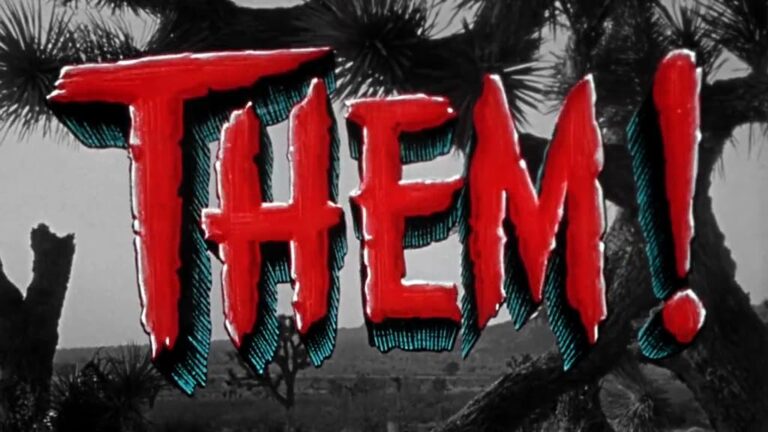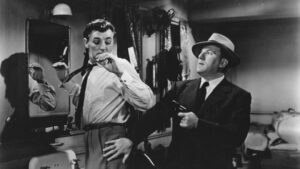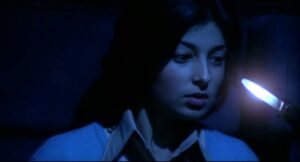Directed by Terence Fisher
Written by Jimmy Sangster
Starring:
- Peter Cushing as Doctor Victor Stein
- Francis Matthews as Doctor Hans Kleve
- Eunice Gayson as Margaret Conrad
- Michael Gwynn as Karl
- Lionel Jeffries as Fritz
- John Welsh as Bergman
Rating: ![]()
Dr. Frankenstein (Peter Cushing) manages to escape his sentence on the guillotine and has now settled in a small town under the pseudonym of Dr. Stein, where he continues his nature-defying innovations that were previously truncated in the first installment. Hammer ups the stakes in this creative sequel of the Frankenstein series with more aesthetic originality and morbid wit. However, this British gothic horror production feels more like a commercial obligation than an artistic motivation – it lacks the experimental charm and painterly visual frugality of its predecessor – even though it is a legitimate attempt to surpass what Hammer did a year earlier, the pretensions here exceed the budget and what the filmmakers had in mind. Jimmy Sangster, Hammer’s favorite screenwriter, writes more allegorically than literally in this follow-up to Mary Shelley’s mythology that he deftly adapted in The Curse of Frankenstein.
The Frankenstein name, after the horrific and tragic consequences of the monstrous experiments, suffers from social ostracism; Victor Frankenstein operates clandestinely in a new attempt to create the perfect man with different human body components. Oscar Quitak plays the hapless hunchback Karl, Dr. Stein’s savior and new servant, a docile fellow revolted by his anatomical asymmetry, who will be the protagonist of a brain transplant into a healthy, athletic and symmetrical young body. The film, shot in gory Technicolor, is shockingly graphic in its display of human organs and grotesque surgical procedures, yet it is less callous and somewhat apathetic in contrast to the 1957 picture. But Peter Cushing finds in the deranged braininess of the notorious Frankenstein an unquenchable stamina, he is clearly having a blast, and his extraordinary enjoyment is reciprocated by the sheer entertainment orchestrated by Terence Fisher’s captivating mise-en-scène.
It’s a sturdy sequel, but the missteps are sometimes so invasive that they keep me from thoroughly loving this second Frankenstein installment. The dutiful camera angles are consciously arranged to render the allegory of Sangster’s screenplay quickly graspable; rather than a film about Dr. Frankenstein’s obsessions with subverting the laws of the nature of life, it’s a wry farce about man’s preoccupation with physical beauty. The Hunchback is determined to “sell his soul to the devil” in exchange for a perfect body. The provocative use of the concept of utopian beauty being interchangeable with Frankenstein’s scientific ambitions feels like a convincing gimmick, but it’s still a gimmick. It’s not that I didn’t enjoy Sangster’s thematic astuteness or Fisher’s formal rigor, it’s that I would have been more pleased to see those narrative nuances in any other film but this one. It’s a Frankenstein movie that doesn’t really feel like one, it’s an apocryphal Frankenstein flick. It’s still cool but also not as great as the fans sell it to you.









